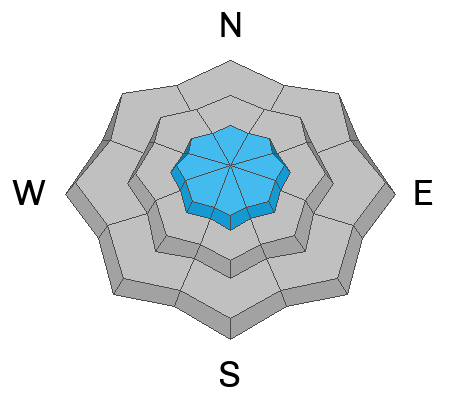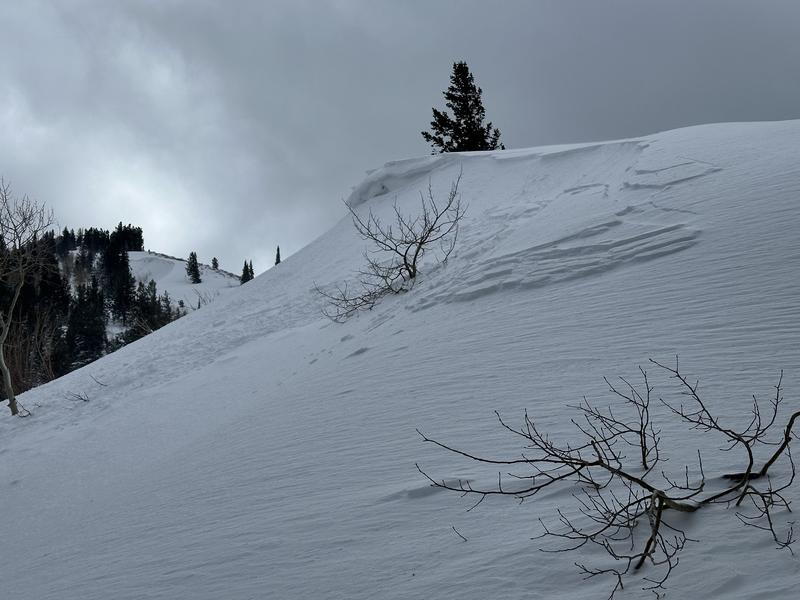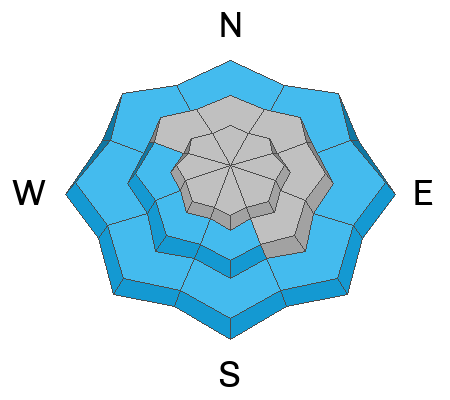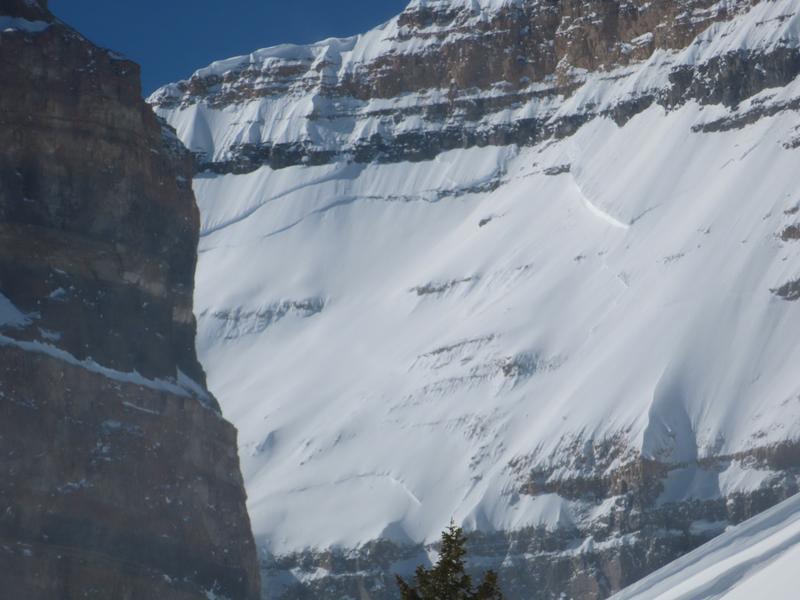Forecast for the Provo Area Mountains

Issued by Dave Kelly on
Thursday morning, March 7, 2024
Thursday morning, March 7, 2024
Today, there is a MODERATE avalanche danger on upper elevation steep terrain for lingering wind-drifted snow avalanches. The avalanche danger is LOW in mid and lower elevation terrain.
You will see dry loose avalanches in steep terrain at all elevations on the shady side of the compass and may see wet snow with daytime warming.
You will see dry loose avalanches in steep terrain at all elevations on the shady side of the compass and may see wet snow with daytime warming.
As you step out into bigger terrain evaluate each slope carefully for areas of wind-drifted snow or thinner places that may have avalanched earlier this season. These steeper locations will be rockier and have a shallower snowpack. They are the places where it would be possible to trigger an avalanche.
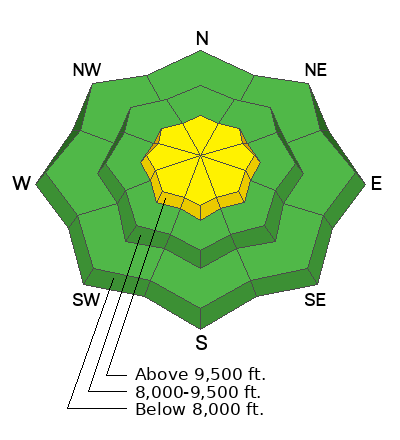
Low
Moderate
Considerable
High
Extreme
Learn how to read the forecast here




